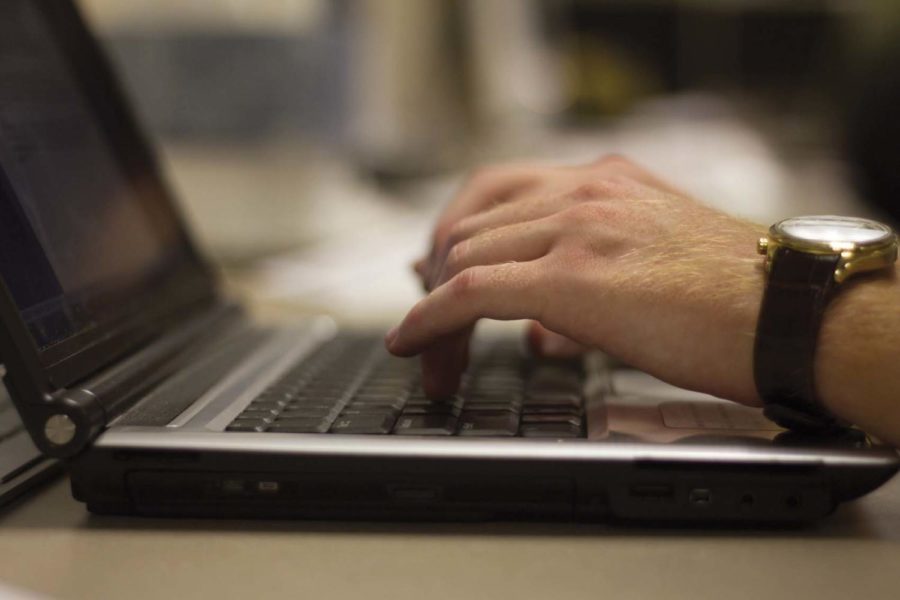Iowa State pushes the envelope with Internet connection
File photo: Kelsey Kremer/Iowa State Daily
With more people wanting solid Internet connections, Iowa State must find ways to deal with the high demand.
November 2, 2012
In the current age, expecting a quality Internet connection is not without reason or justification. Most classes utilize Blackboard or require a sturdy Internet connection to email professors, coordinate homework assignments with peers or simply to relax after a long day of classes.
With such high demand for a solid Internet connection, small connection problems — both on campus and off campus — can sometimes become magnified.
The Carver and Gilman Testing Centers experienced unusual problems with connecting to Blackboard weeks ago, inconveniencing many students. Some residence halls, Maple-Willow-Larch and Friley Hall, experience regular blackouts of Internet connection, however, short-lived.
Do these isolated incidents of poor Internet connection show that students and Ames residents are not getting the best possible Internet service?
Jennifer Lohrbach, senior systems analyst for IT Services Networks and Connections and team leader for the network engineering group, insists that Iowa State works hard to provide its students and staff with excellent Internet connections.
“There are no problems with the Internet,” Lohrbach said. “As far as the stability of our Internet connection, we’ve been rock solid.”
Lohrbach pointed out that any Internet problems that students may be experiencing are most likely caused by an abundance of “rogue access points” or random Wi-Fi routers unassociated with the ISU network that may be responsible for occasional signal interference.
“Where we have some work to do is in the wireless space. We need to get the rest of the campus deployed wirelessly, so we can get better control of the air space,” Lorhbach said.
The Gilman and Carver testing centers’ technical difficulties with connecting to Blackboard caused problems for some students who needed to take tests.
“Most of the time we don’t know what causes it,” said Doug Bull, testing center program coordinator. “We report the issue, but then it just starts working again. Typically the issues are very short-lived. We’re doing everything we can to make sure our Internet hubs are up-to-date.”
Many students believe that Internet signal on campus is, for the most part, reliable and fast.
“The Internet is exceptional,” said Justin Graeve, sophomore in mechanical engineering. “Outdoor Wi-Fi can be a hit or miss, though. On some days it works great; other days it can be spotty. But for the most part, the Internet works fine.”
This year’s record-breaking enrollment means that there are more people connected to Iowa State’s network than ever before, with about 10,000 new Internet-capable devices registered on campus this semester. Upgrades to the system were necessary to maintain quality Internet connections.
“We make changes every year to upgrade or increase capacity on different things,” Lohrbach said. “Every year we’ve added another set of routers to be able to handle the growing demand, and we’ll probably do the same next year.”
Looking into the future, Iowa State seeks to cover the entire campus with strong Wi-Fi signals.
“We’re actually going to a 100-gigabyte connection on campus by the end of the spring semester,” Lohrbach said. “We will be one of the first in the United States to have 100-gigabyte connections on campus.”

















